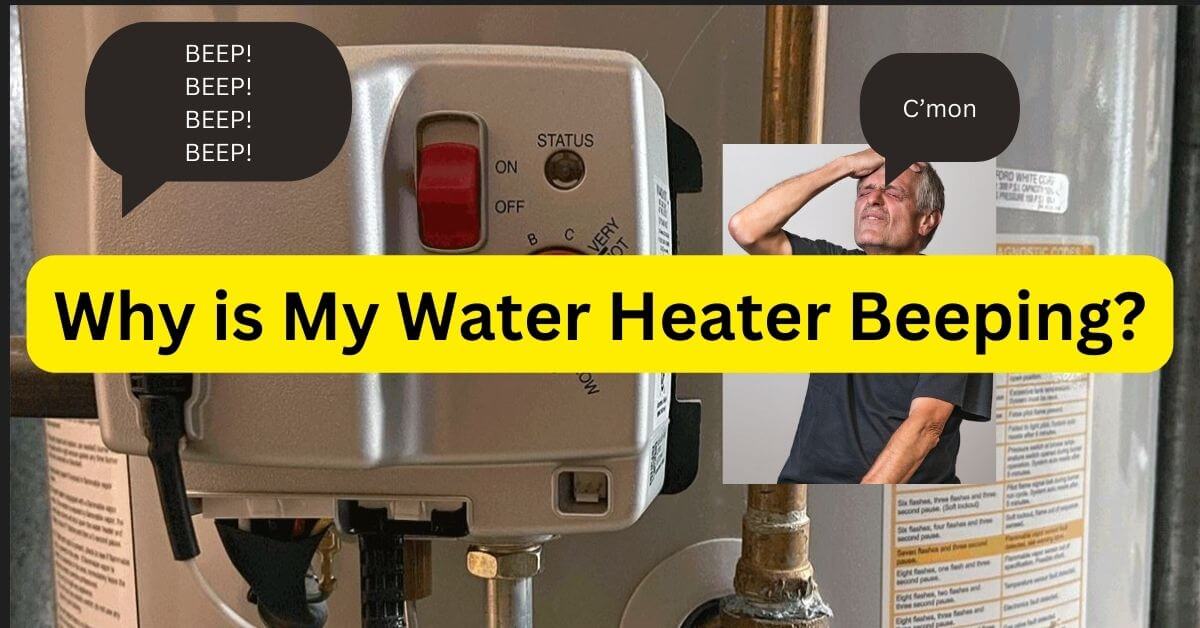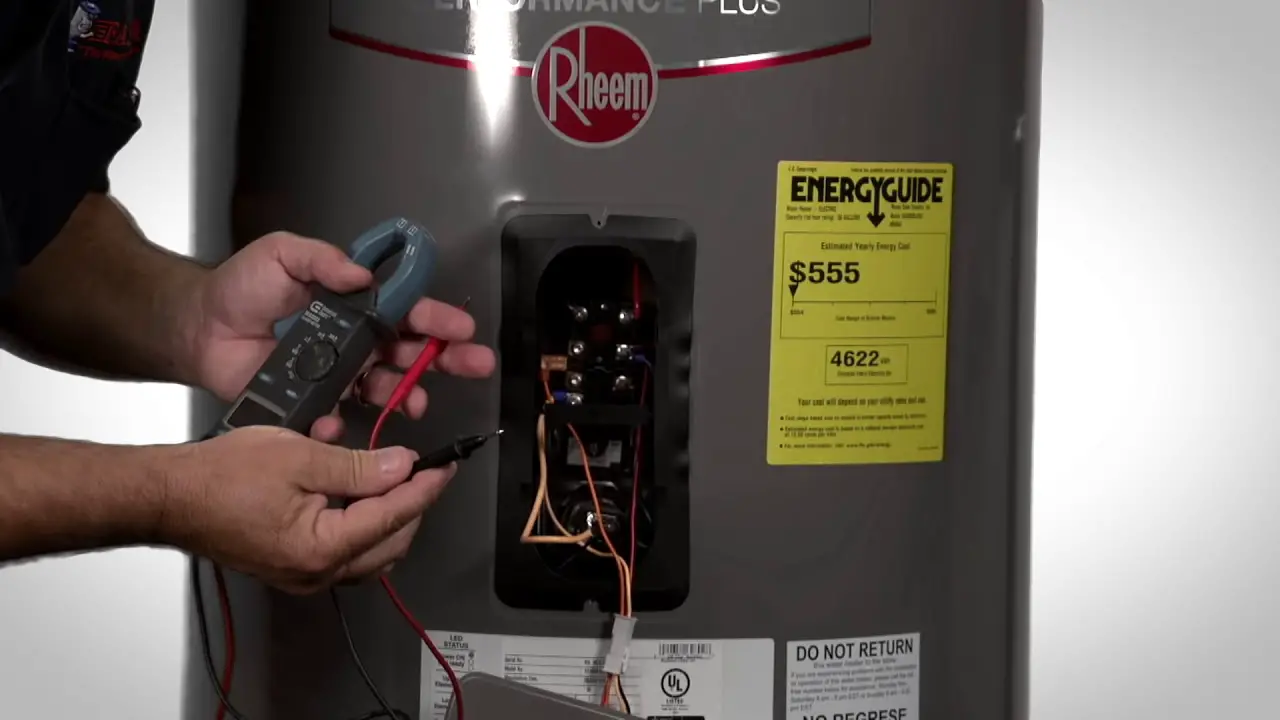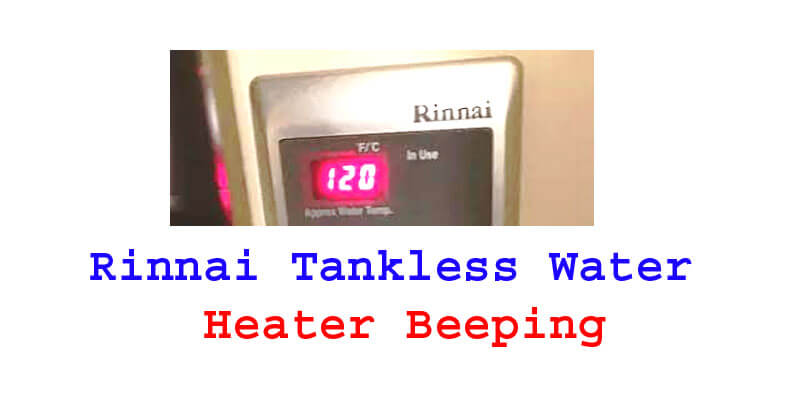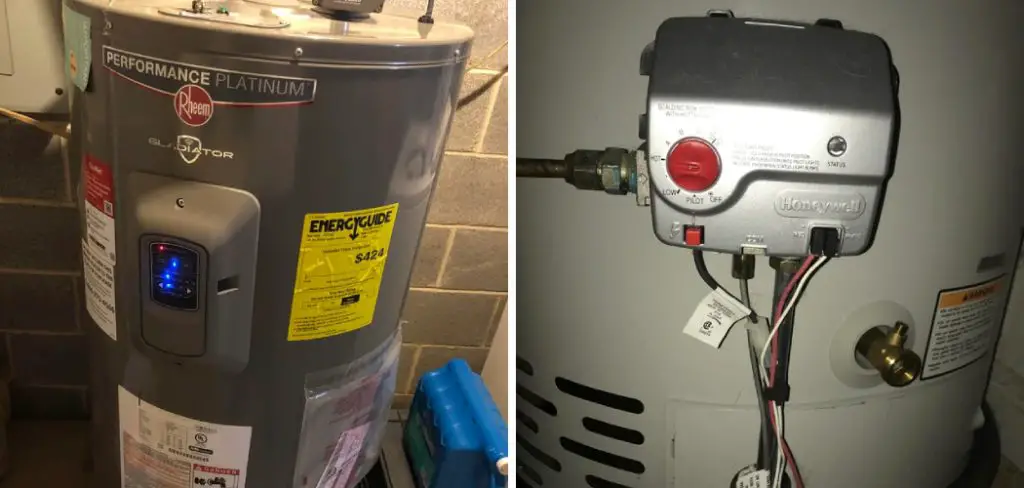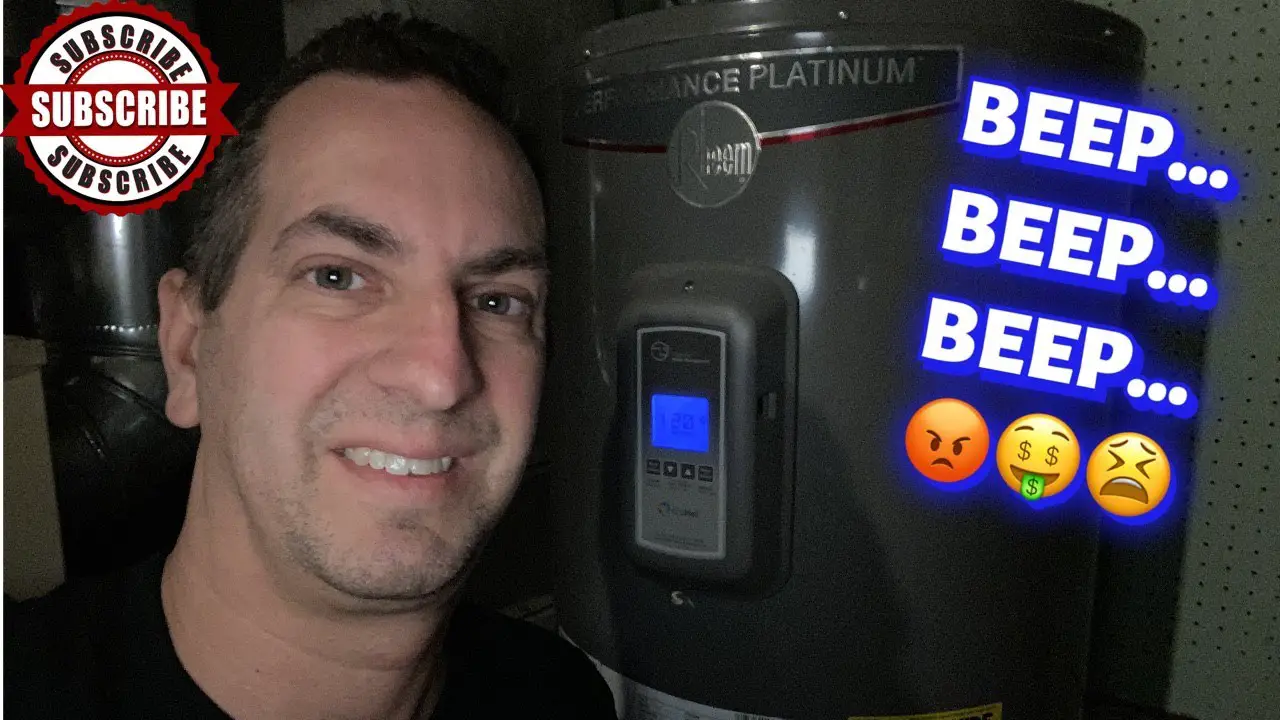Water Heater Alarm Beeping

That incessant beeping coming from your water heater can be incredibly frustrating. It's your water heater's way of telling you something's wrong, and ignoring it can lead to bigger problems down the road. This article will guide you through the common causes of water heater alarm beeps, how to troubleshoot them, and when it's time to call in a professional.
Understanding Your Water Heater Alarm
First things first: not all water heaters have alarms. If yours does, it's usually a safety feature designed to alert you to potential hazards. The type and frequency of the beep can offer clues to the underlying issue.
Common Beep Codes: What They Mean
- Continuous Beeping: Often indicates a more serious problem, such as a gas leak or carbon monoxide (CO) detection. Evacuate the area immediately and call your gas company and a qualified HVAC technician.
- Beeping Every Few Seconds: Can signal various issues, including a low battery, a sensor malfunction, or even a simple system error.
- Intermittent Beeping (Long Intervals): Sometimes indicates the end of the water heater's lifespan or a more complex issue requiring professional diagnosis.
Troubleshooting Steps: A DIY Approach
Before you start troubleshooting, always turn off the power or gas supply to the water heater. This is crucial for your safety.
Step 1: Check the Battery
Many water heaters with alarms are equipped with a battery backup for the CO detector or the entire system. A low battery is a common culprit for beeping.
- Locate the battery compartment (usually on the control panel).
- Open the compartment and remove the old battery.
- Replace it with a fresh battery of the correct type (typically a 9-volt battery).
- Test the alarm to ensure the beeping has stopped.
If the beeping persists after replacing the battery, move on to the next step.
Step 2: Examine the Control Panel
The control panel is the brain of your water heater. Look for any error codes or flashing lights.
- Consult your water heater's manual to understand the meaning of any error codes.
- Some error codes can be cleared by simply pressing a reset button (usually located on the control panel). Only press the reset button once. Repeatedly pressing it can be dangerous.
- If the error code reappears after resetting, investigate the underlying issue further.
Step 3: Inspect for Water Leaks
Water leaks can trigger alarms in some models, especially those with leak detection sensors.
- Carefully inspect the area around the water heater for any signs of water leakage. Check the connections, the tank itself, and the pressure relief valve.
- If you find a leak, address it immediately. Small leaks can often be repaired by tightening connections or replacing washers. Larger leaks may require professional repair or water heater replacement.
Step 4: Check the Temperature and Pressure Relief (TPR) Valve
The TPR valve is a safety device designed to release excess pressure and temperature. If it's malfunctioning, it can cause the alarm to sound.
- Locate the TPR valve (usually on the top or side of the water heater).
- Carefully lift the test lever on the valve. Water should flow freely from the drainpipe.
- Release the lever. The valve should snap shut.
- If the valve doesn't open or close properly, or if it's constantly dripping, it needs to be replaced by a qualified plumber.
Step 5: Sediment Buildup (For Tank Water Heaters)
Sediment accumulation at the bottom of the tank can cause overheating and trigger the alarm.
- Caution: Hot water can cause scalding. Take precautions. Turn off the power or gas to the water heater.
- Connect a hose to the drain valve at the bottom of the tank.
- Open the drain valve and flush the tank until the water runs clear.
- Close the drain valve and refill the tank.
- Turn the power or gas back on.
When to Call a Professional
While some water heater issues can be resolved with DIY troubleshooting, certain situations require the expertise of a qualified HVAC technician or plumber. Never attempt repairs you're not comfortable with. Working with gas and electricity can be dangerous.
- Gas Leaks: If you suspect a gas leak (smell of gas, hissing sound), evacuate the area immediately and call your gas company and a qualified HVAC technician.
- Carbon Monoxide Detection: If your CO detector is sounding, evacuate the area immediately and call the fire department.
- Complex Electrical Issues: If you're not comfortable working with electricity, leave electrical repairs to a professional.
- Major Leaks: Large leaks that you can't easily repair require professional attention.
- Unfamiliar Error Codes: If you can't decipher the error code or the recommended solution is beyond your skill level, call a professional.
- End of Lifespan: Most water heaters have a lifespan of 8-12 years. If your water heater is nearing the end of its life and exhibiting problems, it might be time to replace it.
Estimated Repair Costs
The cost of repairing a water heater varies depending on the problem and your location. Here are some rough estimates:
- Replacing a Thermocouple: $100 - $250
- Replacing a Heating Element: $150 - $300
- Replacing a TPR Valve: $100 - $200
- Replacing a Gas Valve: $200 - $500
- Flushing the Tank: $75 - $150 (professional service)
- Water Heater Replacement: $800 - $2500+ (including installation)
These are just estimates. It's always best to get a quote from a qualified professional before proceeding with any repairs.
Preventive Maintenance for Water Heaters
Regular maintenance can help prevent water heater problems and extend its lifespan.
- Flush the Tank Annually: Remove sediment buildup to improve efficiency and prevent overheating.
- Inspect the Anode Rod: The anode rod protects the tank from corrosion. Replace it every few years.
- Check the TPR Valve: Test the TPR valve periodically to ensure it's functioning properly.
- Insulate the Tank: Insulating the tank can reduce heat loss and save energy.
- Lower the Thermostat: Setting the thermostat to 120°F (49°C) can save energy and prevent scalding.
Safety First
Safety is paramount when working with water heaters. Always follow these safety precautions:
- Turn off the power or gas supply before starting any repairs.
- Wear appropriate safety gear, such as gloves and eye protection.
- Be careful when working with hot water.
- If you're not comfortable with a repair, call a professional.
Choosing a New Water Heater
If your water heater is beyond repair or nearing the end of its lifespan, it might be time to replace it. When choosing a new water heater, consider the following factors:
- Tank vs. Tankless: Tank water heaters are more affordable upfront, while tankless water heaters offer on-demand hot water and can save energy in the long run.
- Fuel Type: Choose a water heater that uses the same fuel source as your current one (gas or electric).
- Size: Select a water heater that's appropriately sized for your household's hot water needs.
- Energy Efficiency: Look for a water heater with a high energy factor (EF) rating.
- Warranty: Choose a water heater with a good warranty.
The beeping from your water heater is a signal that something needs attention. By following these troubleshooting steps and understanding when to call a professional, you can keep your water heater running safely and efficiently.
